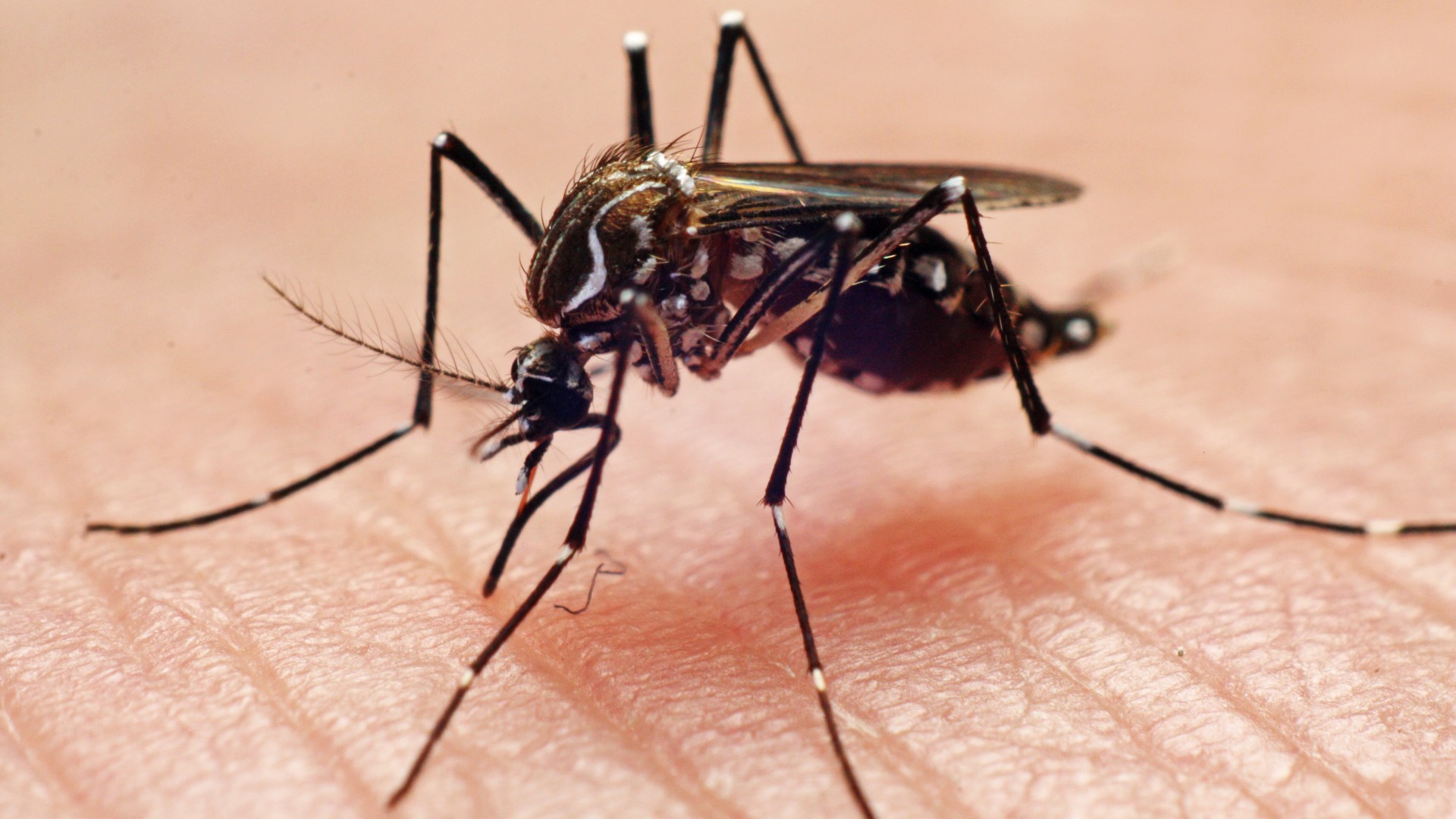
Nearly 20% of cases of dengue fever, a mosquito-borne viral disease, can be attributed to climate change, a new study suggests. If action isn't taken to mitigate global warming, this figure may rise to 60% by 2050, projections show.
These estimates come from an analysis of approximately 1.5 million dengue infections that happened across 21 countries in Asia and the Americas between 1993 and 2019. The analysis included only nations where the disease is endemic, meaning it regularly circulates in those regions. The researchers considered factors that could affect infection rates, including rising temperatures, changing rainfall patterns and shifts in population density. They then used statistical tools to determine that, of these factors, rising temperatures were specifically responsible for 19% of dengue infections.
This is the first time climate change has been causally linked to the spread of dengue, the scientists say.
For years, researchers have discussed theories as to how mosquito-borne diseases may be affected by climate change, Erin Mordecai, study co-author and an associate professor of biology at Stanford University, told Live Science. Mosquitoes are cold-blooded, meaning their internal temperature varies with the environment. The warmer the temperature, the faster mosquitoes will grow and reproduce, which inflates the number of pests that can bite and spread disease.
Related: Scientists release genetically modified mosquitoes to fight dengue in Brazil
Until the new study, however, most research had only hinted at potential associations between rising temperatures and the spread of infectious diseases, Mordecai said; no studies had shown that one led to the other.
In the new study, researchers focused on dengue because it has a high optimal temperature, meaning global warming is likely to make it more suitable for the disease to spread, Mordecai said. That goes for environments where dengue already spreads and places where it doesn't yet.
The researchers found that there is an optimal temperature range in which mosquitoes can transmit dengue to humans. Below 59 degrees Fahrenheit (15 degrees Celsius), the virus behind dengue multiplies too slowly inside mosquitoes for them to easily spread it. But as temperatures rise, the amount of virus in mosquitoes rises and thus leads to higher infection rates, peaking at around 84.2 F (29 C).
Consequently, in some areas of Peru, Mexico, Bolivia and Brazil — where dengue is already endemic — infections may rise by more than 150% in the next few decades as these regions experience higher temperatures within that peak range, the researchers predict.
Beyond that 84.2 F threshold, disease transmission starts to fall because, even though dengue develops quickly, mosquitoes start dying before they can infect people. Temperatures above 86 F (30 C), for instance, are thought to shorten the life span of mosquitoes such that fewer are able to bite and infect people. In regions that are already very hot, such as southern Vietnam, rising temperatures could therefore slightly reduce infection rates, the authors suggested.

Actions that reduce carbon emissions, and thus mitigate global warming, would help prevent this potential surge in global infection, Mordecai said. Indeed, the researchers predicted that if carbon dioxide emissions decline to net-zero around or after 2050, there would be a 7% smaller increase in dengue cases overall, or 30% less in some countries.
Most people who become infected with dengue have mild or no symptoms, but some patients can develop severe complications, such as organ failure and internal bleeding, that can be deadly. Approximately 1% of people treated for the infection still die from it, and this figure can rise to 20% if the disease is left untreated.
Related: Michael Mann: Yes, we can still stop the worst effects of climate change. Here's why.
The researchers presented their findings Saturday (Nov. 16) at the American Society of Tropical Medicine and Hygiene's annual meeting in New Orleans. Preliminary results of the study were also posted Jan. 9 to the preprint database medRxiv, but they have not been peer-reviewed yet.
What could happen in the US?
The researchers didn't consider the U.S. in their analysis because they needed consistent data on dengue infections over a long period, Mordecai said. Dengue is endemic to some U.S. territories but not to any states — yet.
Nonetheless, there is emerging evidence that climate change is making dengue more common in the states, as well. In recent years, locally acquired cases have been reported in California, Texas, Florida, Hawaii and Arizona — that means people caught dengue within the U.S. and not from traveling to another country. In June 2024, the Centers for Disease Control and Prevention warned that Americans would face a higher-than-normal risk of dengue infection that summer because of rising cases worldwide.
It's a fraught situation: Temperatures in the U.S. are becoming more suitable for dengue to spread locally, and there are more infections happening elsewhere that are then being imported into the country.
"Dengue is coming, and dengue is going to get worse in places that are currently at the marginal temperature range [for transmission]," Mordecai said, including high-altitude tropical regions, as well as southern parts of Brazil, North America and Europe.
These locales don't currently see many dengue infections thanks to their temperate climates. However, global warming may mean that they need to start dialing up their public health responses to help shrink mosquito populations and thus the number of infections, Mordecai warned.
Ever wonder why some people build muscle more easily than others or why freckles come out in the sun? Send us your questions about how the human body works to community@livescience.com with the subject line "Health Desk Q," and you may see your question answered on the website!







